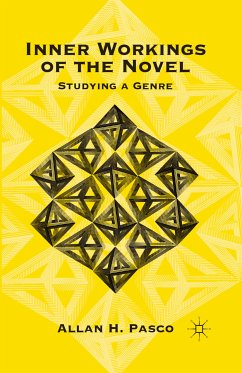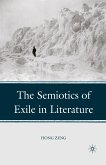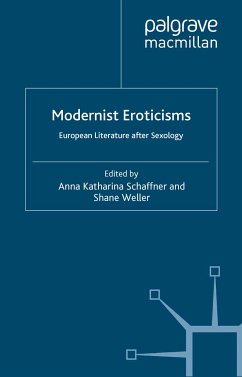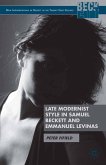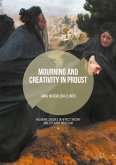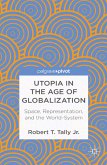Dieser Download kann aus rechtlichen Gründen nur mit Rechnungsadresse in A, B, BG, CY, CZ, D, DK, EW, E, FIN, F, GR, HR, H, IRL, I, LT, L, LR, M, NL, PL, P, R, S, SLO, SK ausgeliefert werden.
"In this highly original work, Pasco returns to the central preoccupations of his own oeuvre: novelistic forms and their rhetorics, viewed in the context of history. His close readings are as cogent as ever: powerfully theorized, intimate with the concrete particulars and unifying principles of the text, and not only alert to culture but mindful of its myriad, latent pressures. Transparently and gracefully written, The Inner Workings of the Novel should exercise a wide and positive influence." - David Lee Rubin, University of Virginia
"With his Inner Workings of the Novel, Pasco brings a lifetime of reading to bear on what he considers to be the principal ways in which novels achieve inner coherence. When different instances are considered collectively, his study in turn creates a defining coherence for the genre itself, demonstrating why it is that we recognize as novels works that may be so dissimilar, even incompatible, from formal, historical, or esthetically ideological points of view. Pasco chooses his examples from among extreme cases of the modern novel: Flaubert s Tentation de saint Antoine, Huysmans s A rebours, and Proust s A la recherche du temps perdu. His analyses perspicaciously support his thesis, certainly, though are above all a pleasure to read for the many insights that illuminate these important works." - Marshall C. Olds, Willa Cather Professor and Professor of Modern Languages, University of Nebraska-Lincoln
"Pasco brings together a wide range of literary works and theoretical concepts to approach a dizzyingly complex topic of literary theory with his customary ambition, expertise, wit, and deep affection for literature and theory. The reader is constantly engaged by a comfortable and thoughtful eloquence as Pasco leads to the fundamental question raised here: what is at stake in the notion of genre as applied to that unwieldy, ancient, and ever modernizing form, the novel?The book intrigues, engages, and leads to a deeper appreciation of modern literature, with references across languages and historical periods as well as from a wide range of secondary works of criticism and theory. Its readable style, richness of materials, and engaging tone will charm a range of readers from the general educated public to students of various levels, as well as fans and scholars of literature and literary theory, history, and culture." - Beryl Schlossman, Carnegie Mellon University

